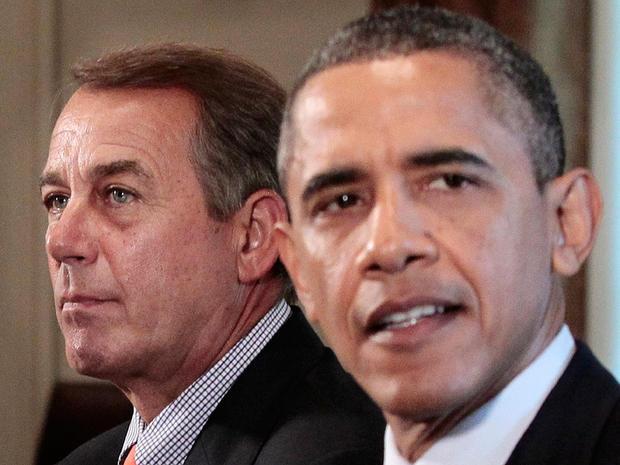Speaker Boehner abandons comprehensive debt deal
The White House and Republican leaders had been negotiating recently over a comprehensive deal that would have produced $4 trillion in savings, hoping to avoid any possibility of defaulting on the nation's debt ahead of an Aug. 2 deadline to raise the debt ceiling.
On Saturday night, House Speaker John Boehner abandoned the deal, saying a mid-size package of reforms that do not include any kind of increase in taxes on anyone is the only politically viable solution, The Washington Post reports.
The White House responded by releasing a statement decrying the move, saying that "congressional leaders...must reject the politics of least resistance and take on this critical challenge."
In a statement, Boehner said: "Despite good-faith efforts to find common ground, the White House will not pursue a bigger debt reduction agreement without tax hikes. I believe the best approach may be to focus on producing a smaller measure, based on the cuts identified in the Biden-led negotiations, that still meets our call for spending reforms and cuts greater than the amount of any debt limit increase."
In response, White House Communications Director Dan Pfeiffer said: "We cannot ask the middle-class and seniors to bear all the burden of higher costs and budget cuts. We need a balanced approach that asks the very wealthiest and special interests to pay their fair share as well. Both parties have made real progress thus far, and to back off now will not only fail to solve our fiscal challenge, it will confirm the cynicism people have about politics in Washington."
The move by Boehner means the negotiations will likely fall back on the smaller reform package that Vice President Joe Biden and GOP leaders had been negotiating, which would amount to as much as $2.4 trillion in savings, the Post reports. That package includes only cuts to federal agency budgets and modest reforms to entitlement programs like Social Security and Medicaid.
If approved by all parties, the smaller savings plan would allow for Congress to approve an extension of the federal debt ceiling into the spring of 2013, the Post reports.
House Majority Leader Eric Cantor had indicated the GOP would not give in on any tax adjustments on Friday, saying: "It just does not make sense for Americans to suffer under higher taxes in an economy like this. There is no way the House of Representatives will support a tax increase."
Democrats had been pushing for alternative forms of tax hikes that would close loopholes creating tax breaks for certain kinds of industries like corporate jets, as well as raising taxes on only the highest-earning Americans.
